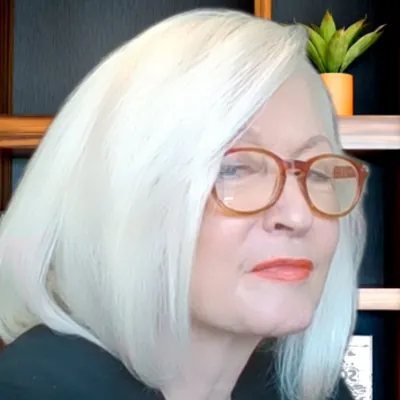Genetic testing has taken the genealogical world by storm—but many good genealogists feel lost in that storm; and more than a few family trees have suffered damage. How do we harness the power of genetic genealogy without being swept away in the surge? This session guides genealogists through four areas: (1) converting DNA data into evidence; (2) turning that evidence into proof; (3) crafting citations that include all genetic details needed for proof; and (4) protecting privacy throughout the research and presentation of our conclusions. The session offers simple but solid ground rules—no geek speak!—illustrated by a variety of case studies.

Already a member? Log in









You should receive a confirmation email with a link to the webinar soon.
You’ll also receive a reminder both the day before and one hour before the webinar begins.
Didn’t receive a confirmation email?
You successfully registered for %s.
You should receive a confirmation email with a link to the webinar soon.
You’ll also receive a reminder both the day before and one hour before the webinar begins.
Didn’t receive a confirmation email?
To ensure a smooth, high-quality webinar experience, check the quality of your internet connection.
On the day of the webinar, connect 30–40 minutes before and turn off any background software. If you can’t tune in live, you can view the recording later in the Webinar Library. If joining via a mobile device, be sure to first install the free GoTo app.
Questions? Contact us or read our FAQ.
It looks like you’re already registered for this webinar
You can register for another webinar.
Didn’t receive a confirmation email?
It looks like you’re already registered for these webinars
You can register for another webinar.
Didn’t receive a confirmation email?
Something happened on our end, sorry about that
We were unable to complete your registration.
Please try again later.



 Syllabus
Syllabus
Absolutely incredible presentation. Thank you ESM for sharing so much with us over the past two years, plus the many previous decades.
This was awesome! It actually helped me out a lot with some of the DNA issues I am having.
Very good delineation of DNA use in our genealogies. This particular seminar could be used with any undergraduate/graduate class concerning verification of research. JUST EXCELLENT!
Another superb masterclass from ESM. She reduced what feels like a very difficult topic to very clear, concise steps. I’m so sad the series is over, but so glad that we have the ability to watch and re-watch all the webinars again. Sadly I missed the opportunity to put my thanks into the book, so I’ll just say it here …. Every webinar in this series is a masterclass and, like all of us I’m sure, I am a far better family historian for having watched. You have taught us to approach our research from so many angles and in so many ways, constant opening our eyes to how much more there is that we could do! You have given us hope as well as understanding and strategies, (mixed with a dose of trepidation!) because we all now know that there will always be something else we can do when we feel stuck. I feel very privileged to have been able to attend. So a huge thank you, on a personal level and for making the genealogy world a better place for us all. We will miss you!
ESM is amazing. Simply amazing.
ESM is the Guru of Genealogy. Her knowledge, manner of presentation and topics are outstanding. I will miss her Friday webinars, but will revisit the recorded ones often.
The knowledge that ESM has is just astounding. What a privilege to be able to attend these sessions. Thank you!
This was a great webinar on a somewhat difficult subject to comprehend. As always, it was presented in an understandable manner without leaving out key information. Once again, despite my years of dealing with DNA and genealogy research, I learned so much more with this presentation. The added bonus was how to cite sources when using DNA results. The case studies were so well explained with diagrams and examples that it proves “a picture is worth a thousand word”s. Thank you Elizabeth Shown Mills!